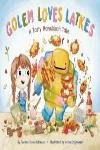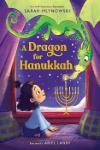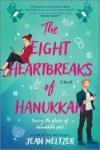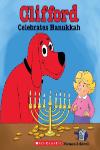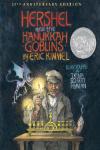Style, story and sincerity: Thoughts on “The Immigrant” by Frederic Petrovsky

Buy this book at Amazon or for Kindle or at Bookshop
The first thing that grabbed me in Frederic Petrovsky’s novel was its style. The sense of awe stayed with me as I kept reading the book and noticed how it became versatile and always fit masterfully the location and people. For example, the first three chapters of the story are set in a shtetl, a small Jewish village in Eastern Europe. Here the language is simple yet deep, just like the people. We know from the very first sentence–which is strong and foreboding–that something tragic and life-changing will happen, but not from grandiose words or sentences. Rather from the small gestures of the protagonist’s parents, who are fighting hard for him and themselves to ensure a (better) life for him. Their love was as deep as the rabbi’s wisdom and kindness in the next chapter. Style, people, and plot are presented in flawless harmony.
A sharp contrast of the simplicity of language and how it reflects personality was presented a few chapters later when we hear how the showman of a traveling bedazzles the simple village folks with his over-the-top speech that is designed to create a curiosity gap and draw them in the circus to become paying customers. He is one of the most complex figures in the book whose personality we only slowly understand layer by layer. Again the style, which in this case is bombastic, fits the person and its settings with all its smoke and mirrors.
Once the audience is in the circus tent the exaggerated colors, costumes, sounds, and movements are all designed to give them an opportunity to disconnect from their everyday life. This is something that the book does so well to the readers too, albeit at a different level. It transports the readers to a different reality, that could and in some form probably was real. It follows the traditions of great novels: engage the reader on multiple levels, creating the desire to keep reading. Not just for the sake of learning what happens next in the story, but also with the characters with whom we built emotional connections. In the process, we get to know a part and time of the world we didn’t have a chance to live in. The innate desire to learn something new is satisfied along with being entertained when following this fictional, yet feasible adventure that represents a whole generation’s life.
Being the story of a physical and an inner journey the readers get to know not just one reality but at least four plus three. The four parts of the book are set in four places of the world, but the first three also include three different kinds of passage: a wagon ride across the Old World, a sea voyage to the New World, and a (well-researched) train ride to the remotest segment of the latter. These are all passages in this combination of two archetypal stories: that of an immigrant and of coming of age. Our hero starts to become an adult from the moment he is forced to leave his childhood home, and builds up his physical and emotional strength through hard work and learning about the world through interpersonal relations. He does not always do it triumphantly, but always with honesty and sincerity. He truly is a hero even if he doesn’t know it or would even accept the label. His integrity is what makes him stand out in tumultuous circumstances and what makes him likable and relatable.
I cannot avoid comparing and contrasting the changes in the immigrant experience over the last 100 years. This book is set in 1919/20, I become an immigrant 75 years later under very different circumstances and for different reasons. There certainly were no pogroms forcing me to leave Hungary in the 1990s. And I wasn’t leaving because of war either, unlike so many Ukrainians in Europe and millions of other people around the world right now. Also, my physical journey was as simple as boarding a plane and arriving the same day on a new continent. Yet, moving to a new country means essentially the same today as it did a century ago: an ongoing series of dis- and re-connections. Even if the flow of information, people, and goods is unimaginably faster now.
My mother believes that there is something unnatural about traveling faster than a train or car: part of our soul (for lack of a better word) needs to catch up with our body and it may take a few days to do so. No, we are not talking about jet lag, more about the location of our living consciousness. As if dragging our reluctant spirit to a new place would require force and time. Lev/Leo’s soul of the book certainly had time to catch up and his mind and heart to process the changes and choices around him. This is the essence of growing up: giving ourselves the time to reflect on where we are going, where we came from, and why. Petrovsky did an admirable job of drawing a developing character, with a core that remained true to itself.
It is a universal, yet Jewish book. By the time the protagonist settles (at the end of the book), he shed all of his Jewish practices, and as far as I can tell his Jewish beliefs too, with one and a half exceptions. He starts off in a typical Jewish household but at the first major turn of events, he has to get rid of his kippah, the visible symbol of his origins. This act itself is dictated by Jewish beliefs, which state that (almost) any religious law and custom can be broken to save a life. For him, not displaying his background is lifesaving. It was just a first step toward abandoning. He knows that practicing the minutiae of his parents’ faith would not serve his life, so he does not. The one major tenet he keeps is the universal part: belief in God. He never waivers and always answers the question with an unhesitant “yes” no matter what. The “half” exception I referred to is the humanist side of religion: he believes in his fellow men (and women.) These underlying main values guide his life and decisions. The rest is commentary.
The book’s language is poetic and often biblically so. Let me share some of my favorite sentences. I love these, not just because they are aligned with my value system, they speak my truths too in a way I could not articulate, but also for their eloquent beauty.
- If it is true that a drop of love can bring a sea of tears, then I am certain we all will drown. (p47)
- Your father believes that anger is fear in disguise, and that it is best confronted with faith (p73)
- Lev was certain it wasn’t a coincidence that here, at his darkest hour, the ocean had become his universe. (p111)
- When the wise man gets angry, he stops being wise. (p157)
- He decided this was what it meant to be a man, to be confronted with an endless stream of challenges —some small, others insurmountable. (p165)
- Hate is easy. Truth is hard. (p183)
- Even I know the old proverb that a bad peace is better than a good war. (p192)
- You can’t go through life without having faith or trusting people. (p216)
If I try to imagine what I will remember from this book 10 years from now, I think it will not be the many lives Lev lived: a carnal carni, a noble victim of the antisemitic beating, his immersion into New York, “the aftermath of Babel”, or being a hard worker in the Arizona desert. Instead how here is a person who we can look up to because of his integrity and honesty. In our 21st-century world, where so many people escape into the world of superheroes or supernatural beliefs, here is a reminder that to be a hero or a human you don’t have to be superhuman. Honesty, openness, and compassion are more than enough to build the character that can guide you for life. I recommend the book if these appeal to you. Or, even if you just read it for the adventures you will not be disappointed.
Related links:
- The book on the author’s site and on the publisher’s site.
- The author on Facebook, Instagram, and Twitter
The official description:
An unimaginable adventure. An unforgettable young man.
The Immigrant is an uplifting tale of tragedy, triumph, and the struggle to discover what matters most.
The year is 1920, and a teenage Russian boy named Lev has just witnessed his entire world go up in flames. His parents killed in a horrific blaze, leaving him homeless and alone, Lev finds himself joining up with a strange traveling circus. He sets off on a dark journey across a bleak landscape of corruption and persecution.
Facing violent racists, unscrupulous conmen, seedy thugs, and deadly Russian police, Lev’s travels take him across the ocean, through the Big Apple, and finally to the windswept deserts of America’s Southwest. But even as he searches for his last living connection, he finds himself embarking on another journey, into the mysteries of growing up-and discovering what the word home truly means.
An epic journey through a tumultuous period of history, The Immigrant will delight readers with its vivid portrayal of a world lost to time.
Disclaimer: I have received an ACR, digital copy of this book and a small amount from the author which did not affect my review in any way.
Year first published: 2022


